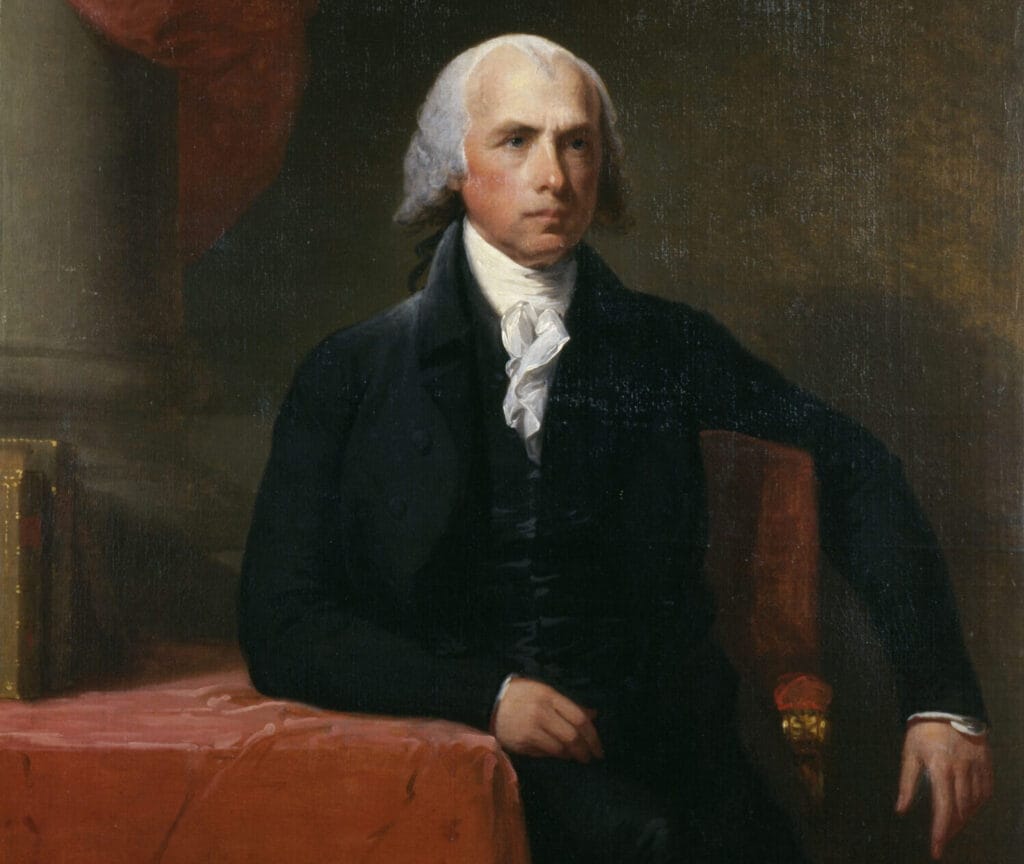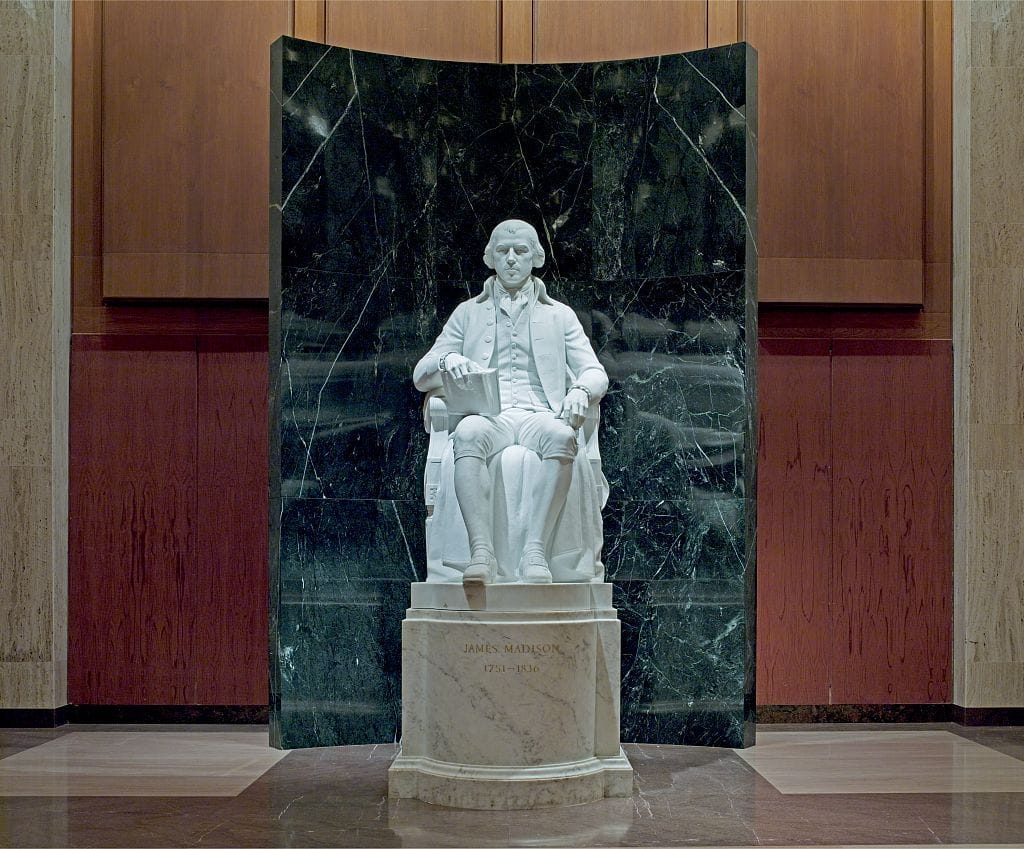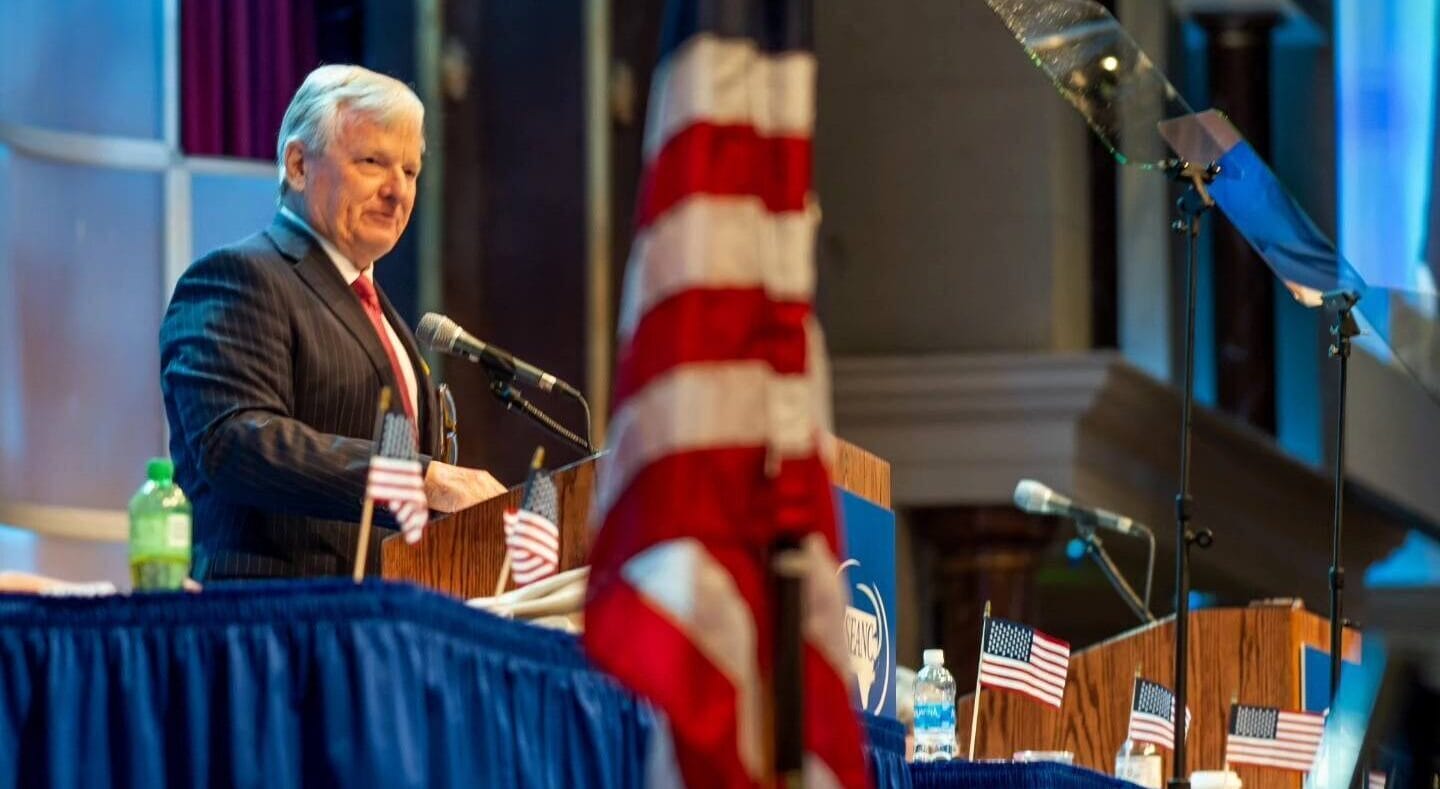Madison’s mistake, and how to fix it

When James Madison, Alexander Hamilton, and John Jay set out in late 1787 to pen the 85 essays we now call the Federalist Papers, they weren’t trying to produce one of the greatest books ever written about politics. They were trying to convince potential delegates to New York’s ratification convention to vote for the proposed federal Constitution.
That they produced such a lasting work of literature, anyway, only serves to illustrate one of the book’s core principles: intentions are no sure guide to results. “The people commonly intend the public good,” Hamilton wrote in the 71st essay, which like the rest was originally published in a New York newspaper, in this case the Packet. “But their good sense would despise the adulator who should pretend that they always reason right about the means of promoting it.”
Though Hamilton is now the star of stage and screen, it is to James Madison that modern-day political theorists and practitioners more often look for insights about the composition and operation of America’s constitutional system. It was Madison who understood the inevitability of political faction and memorably described government as “the greatest of all reflections on human nature.” And it is in one of Madison’s essays, Federalist 45, that readers will find the trio’s lengthiest discussion of how the proposed Constitution would reorder the relationship between the national government and the states.
That it strengthened the former against the latter was, of course, not in dispute. It was the whole point of the Philadelphia convention. But in Madison’s column, written for New York’s Independent Journal, he sought to rebut the objection that the newly created federal government would grow increasingly tyrannical over time, becoming “dangerous to the portion of authority left in the several states.” To the contrary, Madison argued that, if anything, the Constitution hadn’t given the national government enough authority over state government. “The more I revolve the subject,” he wrote, “the more fully I am persuaded that the balance is much more likely to be disturbed by the preponderancy of the last than of the first.”
The future president justified his prediction with several reasonable-sounding observations. For example, he pointed out that the Constitution granted only limited powers to Congress, the presidency, and the federal courts. “The powers reserved to the several states will extend to all the objects which, in the ordinary course of affairs, concern the lives, liberties, and properties of the people, and the internal order, improvement, and prosperity of the state,” Madison wrote. “The operations of the federal government will be most extensive and important in times of war and danger; those of the state governments, in times of peace and security.”

Because state powers far exceeded legitimate federal ones, he continued, state governments would be larger, employing more administrators, judges, militia officers, and tax collectors. By sheer weight of numbers, they’d form a powerful bulwark against federal encroachment. Also, keep in mind that in its original design, state legislators picked U.S. senators. The Electoral College — largely composed of current or former state lawmakers — picked presidents. “Without the intervention of the state legislatures, the president of the United States cannot be elected at all,” Madison insisted. “They must in all cases have a great share in his appointment, and will, perhaps, in most cases, of themselves determine it.”
In Federalist 51, Madison famously explained the rationale for checks and balances. “Ambition must be made to counteract ambition,” he wrote, and in America’s “compound republic” the checks wouldn’t just be horizontal (legislative vs. executive vs. judicial) but also vertical (the national government vs. the states. “The different governments will control each other,” he predicted, while “at the same time each will be controlled by itself.”
We know now that when it came to the national-local dynamic, at least, the James Madison of the Federalist Papers got much of this wrong. He didn’t foresee the elastic interpretations of the “general welfare” clause and other constitutional provisions that federal officials would use to slip the bonds of enumerated powers and assert direct authority over the daily lives of Americans. He also didn’t foresee that the Electoral College would quickly turn ceremonial, and the Constitution would later be amended to elect senators directly.
Madison came to recognize and regret some of his faulty predictions during his lifetime. Others didn’t prove obviously faulty until after his death in 1836. His underlying mistake, however, wasn’t a lack of prescience. It was an uncharacteristically naïve expectation that state and local officials would resist the temptations of federal power. He assumed they’d fight tooth and nail to preserve their separate and expansive authority. He didn’t adequately appreciate how state and local officials would be tempted to make taxpayers in other jurisdictions to fund their pet projects, or to transfer blame for their own failures to far-off Washington, or to pursue later political careers of their own in Washington, or that many local pols would judge it easier to get to the U.S. Senate by direct election than by legislative selection and thus seek to change the rules. Moreover, Madison failed to realize that the one issue about which states were certain to exercise their prerogatives — slavery — would so come to dominate battles over federalism as to corrupt and discredit the concept.
When building America’s political institutions, then, he and other Founders failed to include adequate protections for true federalism. Yes, the Ninth and Tenth amendments were supposed to restrain Washington, but their lack of specificity has limited their utility. Again, intentions are no guarantee of results.
To correct Madison’s mistake, we need amendments with more bite. For example, I can’t imagine a scenario in which Americans manage to rein in Washington and get our fiscal house in order without a constitutional requirement to balance the federal government’s operating budget.
To correct Madison’s mistake, we need amendments with more bite.
Advocates of the idea usually cite the salutary experience of states and localities, nearly all of which are subject to such a rule and thus, are better governed. I’ve made that argument myself in the past. Unfortunately, it’s less valid than it used to be — and Washington’s deficit spending is the main culprit. Whether progressive or conservative, most state and local officials don’t just accept but actively seek to maximize “free” federal funding. By evading the spirit, if not the letter, of their balanced-budget requirements, such politicians can claim credit for new programs, most recently Medicaid expansion and pandemic relief, without the headache of cutting other spending or levying taxes to finance them. Consider this: in the most recent year for which full data are available, 2020, federal dollars made up 36% of the average state budget. In 1990, the comparable figure was 23%.
Another constitutional change worth reconsidering is a cap on the number of years anyone can serve in Congress. Right now we have the worst of both worlds. Many states have term limits on state legislatures, where I’m not convinced the modest benefits are worth the cost of lost expertise, while federal courts have consistently struck down state attempts to limit congressional terms. The federalist case for the latter is that if legislators, governors, mayors, and other officials can dream of decades of high-profile service in Congress, they lack the incentive to combat today the very federal power they hope to exercise tomorrow. If any of our fellow citizens aspire to make politics a career, let them be compelled to do so primarily in state capitals and local communities, not Washington.
While these and other amendments might help, formal constitutions aren’t the only institutions that need strengthening if we seek a lasting devolution of power. We need new ways to identify, train, and incentivize leaders to serve effectively and ethically in state and local office. We need to teach them to take their responsibilities seriously — and to reward them for doing so with awards, accolades, and adequate pay. We also need new organizations and practical tools to keep voters informed. Primarily because the internet destroyed the business model for local newspapers, there are too few professional watchdogs keeping tabs on state agencies and local governments. Washington may be a swamp but at least it’s still swarming with bugs hungry for juicy stories.
We need, in short, to embed our states and localities within thick networks of private associations if they are to thrive —and thus to constitute a real check on the national government. The name of this journal underlines the point. “Political societies are not made by their laws,” Alexis de Tocqueville wrote in an 1853 letter, “but are prepared in advance by the sentiments, beliefs, ideas, the habits of the hearts and minds of the men who are part of them, and by what nature and education have made those men.”
James Madison and our other Founders helped model those American habits of self-government we seek to revitalize. They made many excellent decisions that have stood the test of time. They didn’t do enough, however, to ensure the survival of a truly federal system of government. They made a mistake. It’s time for a new generation of Americans to fix it.
John Hood is president of the John William Pope Foundation and a syndicated columnist. His latest novels, Mountain Folk and Forest Folk, blend epic fantasy with American history.



